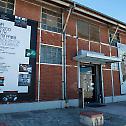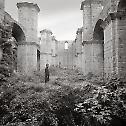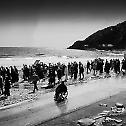Culture
Fr. Dumitru Staniloae: The Cross as a Means of Sanctification and Transformation of the World
5. October 2015 - 15:32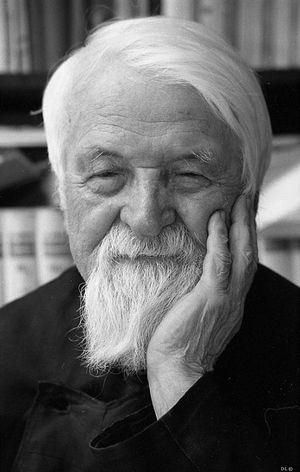 October 5 marks the anniversary of the repose of the renowned Romanian theologian Fr. Dumitru Staniloae. His many works include commentaries on the Church Father, a Romanian translation of the Philokalia, and his 1978 masterpiece The Orthodox Dogmatic Theology. Fr. Dumitru endured several years of imprisonment for his faith at the hands of Communists, after which he began to work for the Romanian Holy Synod and often traveled to international conferences to share his theological vision. He reposed in 1993 at the age of ninety.
October 5 marks the anniversary of the repose of the renowned Romanian theologian Fr. Dumitru Staniloae. His many works include commentaries on the Church Father, a Romanian translation of the Philokalia, and his 1978 masterpiece The Orthodox Dogmatic Theology. Fr. Dumitru endured several years of imprisonment for his faith at the hands of Communists, after which he began to work for the Romanian Holy Synod and often traveled to international conferences to share his theological vision. He reposed in 1993 at the age of ninety.
Below we offer his work on "The Cross as a Means of Sanctification and Transformation of the World" in honor of his memory:
* * *
Through the Cross, Christ sanctified His body—the link with the world. He rejected the temptations sent to Him by the world, that is to taste the pleasures, to satisfy His needs unrestrained or to avoid pain and death. If we, in the same way, ward off the temptations of sin and patiently suffer the pain of death, sanctity can spread from His body to all bodies and throughout the world.
Images Of Mount Athos Through Contemporary Photographers’ Lenses
22. September 2015 - 10:58The Thessaloniki Museum of Photography (TMP), in collaboration with the Mount Athos Center, present “Mount Athos: lingering between image and photographic gaze” exhibition, as part of the “Words and Images” cycle of the museum.
If It Makes You Happy
2. September 2015 - 15:43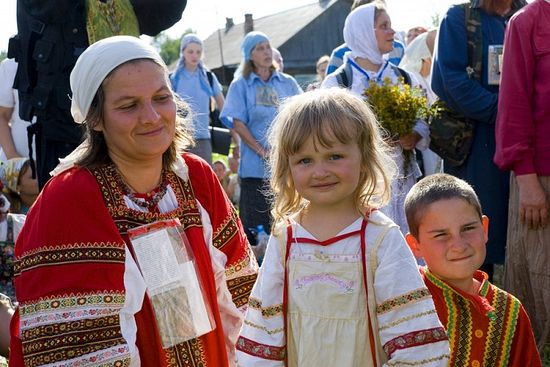 In 1998, my family and I were received into the Orthodox Church. I had served as an Episcopal clergyman for 18 years prior to that. I left a large parish with a wonderful staff and tremendous programs. I took up the work of starting an Orthodox mission. Of course, such a life-change creates awkward moments for your friends, colleagues, and former parishioners. What do you say to someone who just chucked a career to start a mission in a warehouse? Perhaps the common expression, typically American, was, “I’m glad you’re doing what makes you happy.” It would have also been beyond awkward had I responded by telling the truth: “Actually, it makes me miserable.” And the difference between their thoughts and mine, their actions and mine, is all the difference in the world. It was a difference that was at the heart of my conversion and it separates Orthodoxy from the modern world.
In 1998, my family and I were received into the Orthodox Church. I had served as an Episcopal clergyman for 18 years prior to that. I left a large parish with a wonderful staff and tremendous programs. I took up the work of starting an Orthodox mission. Of course, such a life-change creates awkward moments for your friends, colleagues, and former parishioners. What do you say to someone who just chucked a career to start a mission in a warehouse? Perhaps the common expression, typically American, was, “I’m glad you’re doing what makes you happy.” It would have also been beyond awkward had I responded by telling the truth: “Actually, it makes me miserable.” And the difference between their thoughts and mine, their actions and mine, is all the difference in the world. It was a difference that was at the heart of my conversion and it separates Orthodoxy from the modern world.
Exhibition: Serbia in the Great War
1. September 2015 - 9:52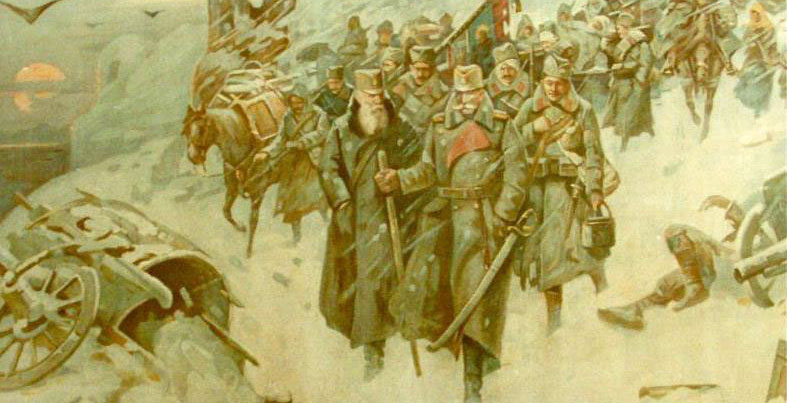 The exhibition is curated by Bojan Pajic and Richard Cooke who have collaborated in researching the experience of their relatives in the Great War. Richard's grandmother, Ethel Gillingham, from Geelong, Victoria, served with the British Red Cross in Serbia in 1915-16, whilst Bojan's grandfather, Lazar Stefanovic, and great uncle, Dragomir Profirovic, served in the Serbian Army throughout the war.
The exhibition is curated by Bojan Pajic and Richard Cooke who have collaborated in researching the experience of their relatives in the Great War. Richard's grandmother, Ethel Gillingham, from Geelong, Victoria, served with the British Red Cross in Serbia in 1915-16, whilst Bojan's grandfather, Lazar Stefanovic, and great uncle, Dragomir Profirovic, served in the Serbian Army throughout the war.
The Shroud of Turin: A Mystery Across the Ages
31. August 2015 - 14:58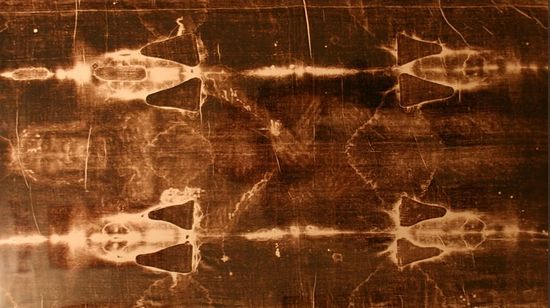 On this day, the Church celebrates the icon of the Savior "Made Without Hands"—the prototype of which is believed to be an image of Jesus Christ's holy face, left on a cloth used to cover His face at burial after the crucifixion. An exhaustively researched and highly interesting article by Fr. Alexy Young, Nun Michaila, and Mary Mansur was published a number of years ago in the periodical, "Orthodox America" on the Shroud of Turin and the Holy Napkin. We present it today in the spirit of the present feast.
On this day, the Church celebrates the icon of the Savior "Made Without Hands"—the prototype of which is believed to be an image of Jesus Christ's holy face, left on a cloth used to cover His face at burial after the crucifixion. An exhaustively researched and highly interesting article by Fr. Alexy Young, Nun Michaila, and Mary Mansur was published a number of years ago in the periodical, "Orthodox America" on the Shroud of Turin and the Holy Napkin. We present it today in the spirit of the present feast.
>The truth of God has to be comprehended not by the mind alone but with all one's strength; by the mind and the will and the heart; one has to live according to the truth in order to come to know the truth. Blessed Archbishop John (Maximovitch)
The Fast of the Dormition of the Holy Theotokos
17. August 2015 - 12:31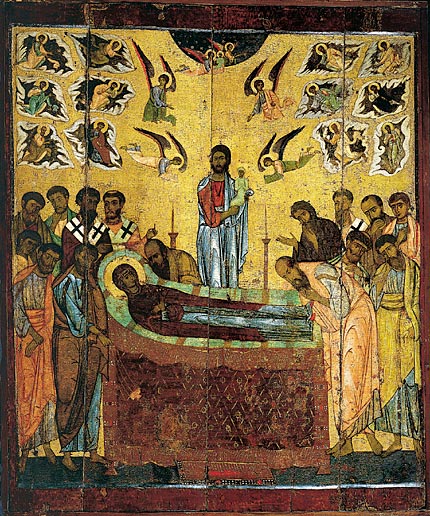 For the first fourteen days of August during each year, the Holy Orthodox Church enters into a strict fast period in honor of the Mother of God, the Virgin Mary. The eminent Orthodox theologian, Father Sergei Bulgakov, beautifully expresses the high regard which the Orthodox Christians have for the Blessed Virgin Mary, the Mother of God, for her special role in the salvation of mankind, when he affirms, “The warm veneration of the Theotokos is the soul of Orthodox Piety.” St. John of Damascus, one of the great Orthodox fathers, pointed out that when the Blessed Virgin Mary became the Mother of God and gave birth to Christ, the Redeemer of Mankind, she became the mother of mankind. We call the Virgin Mary “Theotokos”, from the Greek, which means “The Birth-Giver or the Bearer of God.” This is the highest title that can be bestowed upon any member of the human race.
For the first fourteen days of August during each year, the Holy Orthodox Church enters into a strict fast period in honor of the Mother of God, the Virgin Mary. The eminent Orthodox theologian, Father Sergei Bulgakov, beautifully expresses the high regard which the Orthodox Christians have for the Blessed Virgin Mary, the Mother of God, for her special role in the salvation of mankind, when he affirms, “The warm veneration of the Theotokos is the soul of Orthodox Piety.” St. John of Damascus, one of the great Orthodox fathers, pointed out that when the Blessed Virgin Mary became the Mother of God and gave birth to Christ, the Redeemer of Mankind, she became the mother of mankind. We call the Virgin Mary “Theotokos”, from the Greek, which means “The Birth-Giver or the Bearer of God.” This is the highest title that can be bestowed upon any member of the human race.

